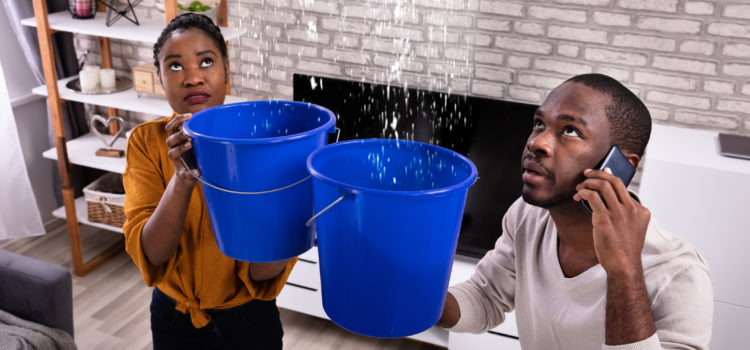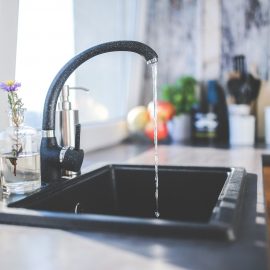
Water damage might not only ruin your ceilings, walls and floors but can also be a very pricey fix. Hence, today I will share with you some tips that will help to reduce the likelihood of any water damage in your house and will help you to sleep peacefully knowing that you won’t wake up to a puddle on your kitchen’s floor.
1. Inspect Sinks and Drains

Do you often try to get rid of cooking grease by pouring it down the drain? If yes, then let me tell you that flushing it with hot or cold water will not make any difference and the grease can still coagulate and cling to pipes. Eventually, this can cause severe damage and block your water flow.
Moreover, I suggest you to be very careful while using chemical drain cleaners. They might be very convenient but beware as they might gradually destroy your pipes and cause water leaks. Besides, if you want a nice solution for clearing away clogs, I recommend you to buy a drain snake.
If you really want your sinks and drains to be in good condition, you should:
- Clean your drains regularly
- Clean out the strainer and instead of the drain or toilet, throw the debris in the trash bin
- Make sure the tub’s overflowing drain is working properly and not leaking
- Check on drain taps found in sink cabinets on a regular basis
2.Check Your Appliances Regularly
If you want to prevent any water incident in your house, you should often check your appliances for leaks as per the manufacturer’s instruction manual. Let me give you some tips:
- Refrigerator: Do you have a refrigerator with an ice maker or water dispenser? You must double-check the water line hose in between your refrigerator and the wall to make sure there are no leaks.
- Water Heater: You must inspect your water heater at every once in a while and check for any slow leaks, water pooling or any rust or corroded areas. Besides, it might be beneficial also to consider upgrading to a water heater to a tankless or on-demand water heater so as you can save on your electric bill.
- AC unit: It is essential to inspect your AC unit for any signs of leaks or water damage, especially if it has been working overtime during extremely hot summer months.
- Washing Machine: Inspect and, if necessary, upgrade the machine washing hoses.
3.Shut Off Your Main Water While Away

Suppose you leave your house for an extended period of time – for example to go on a long vacation. It is essential to shut off your water main before leaving. Why? Because during your long trip, your house will remain empty for days and weeks, meaning that a small harmless leak can quickly turn into a colossal damage by the time you come back. So, turning off your water main can help prevent any water accidents in your house.
4.Know Where Your Water Shutoff Valves Are

What happens if there is a flood emergency in your house but you don’t know where your water shutoff valves are located?
Hence, you need to know the location of the following:
- The whole-house water shutoff
- Hot water shutoff on your water heater
- Inline shutoff valves to toilets and sinks
- Valves connecting to dishwasher and clothes washer
5.Install Leak Detectors

Leak detectors simply refer to electronic devices that can be used to detect water leaks or flooding and can set off an alarm when triggered. Lead detectors come in a variety of shapes and sizes and consist of the following features:
- Wi-Fi capabilities
- Smart home integration
- Phone alerts
- Temperature sensors
Leak detectors can:
- Monitor water’s presence
- Keep track of ambient temperatures
- Detect moisture in the air that can cause mold
- And in case of an emergence, they can turn off the water supply
Usually, the leak detectors can be classified in two categories: spot detectors and area detectors. The spot detectors require moisture or direct contact with water to set off their alarm, while sensor wires are used in area detectors to spot floods.
And if you wonder where exactly to install these leak detectors, follow my guide:
- Basement and attic
- Near the AC unit
- Laundry room
- Water heater closet
- Washing machines
- Bathroom for the tub and toilet
- Under kitchen sink or near the refrigerator
- Near any water pipes
Will you follow these tips? Please share your comments!


